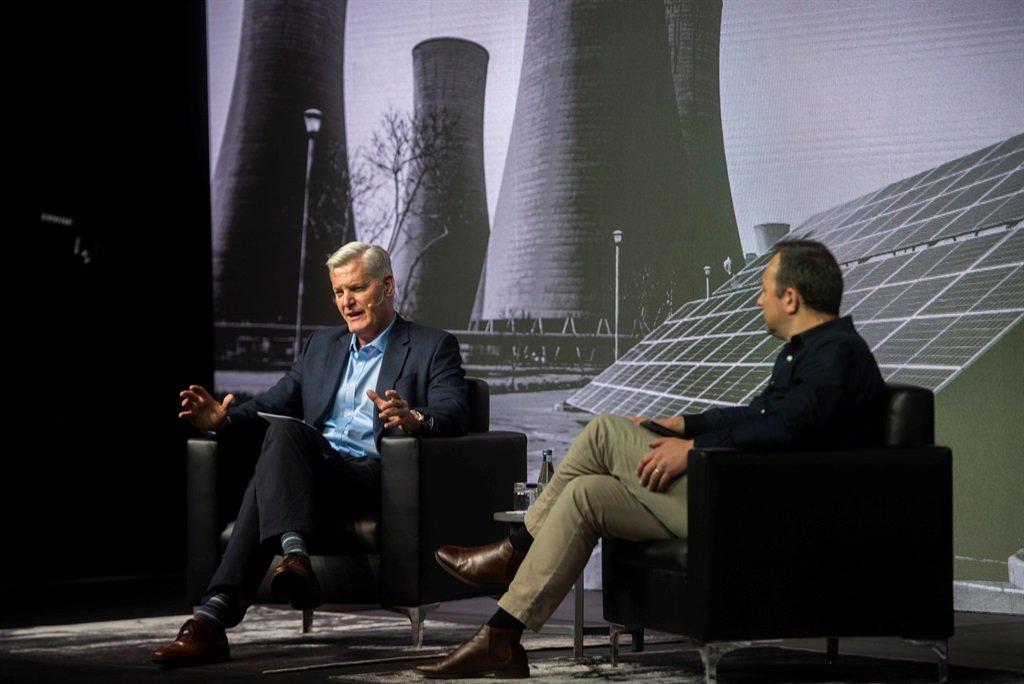Africa-Press – South-Africa. Corrupt practices are still deeply entrenched at Eskom, particularly in procurement processes, says CEO André de Ruyter.
De Ruyter was speaking at News24’s inaugural On the Record leadership summit in Sandton on Thursday. He relayed the challenges he faced when he joined the power utility in January 2020, including the neglect of power stations and the cumbersome procurement processes that needed to be made more efficient.
He spoke of the “residue” of corruption that still persists in the organisation. “The notion that corruption ended when the Gupta plane departed Lanseria airport … that is just not true. Corruption is still part of the organisation,” he said.
Notably, corruption manifests in procurement processes. He recalled how Eskom paid R80 000 for a knee-guard, which must be worn when welding, when it actually retails for about R80 or R90. De Ruyter said these forms of corruption stretch from the lower levels of the organisation to senior management levels and in the past, when his predecessors were in charge, to the executive level.
“The rot percolates to the entire system because this is what is acceptable and deemed to be okay,” he said. It is difficult to try and reverse this when people are accustomed to a corrupt way of life.
De Ruyter:
What needs to change is a greater understanding by those engaging in corrupt practices that there will be consequences. De Ruyter said there was a situation where executives at Tutuka Power station were suspended for theft of fuel amounting to hundreds of millions. But these people were released the next day on bail of R5 000.
This signals to criminals that it is still “attractive” to continue their operations. De Ruyter said Eskom is working with the National Prosecuting Authority (NPA) to share information, hoping it will translate into arrests and successful prosecutions.
“If we do not have the prospect of successful prosecution hanging over criminals’ heads, it will be a battle,” he added.
Cutting out middlemen
De Ruyter also said that the high costs associated with procurement can be minimised – by cutting out “non-value adding” middlemen in supply chains who just inflate the prices of parts. Eskom can now procure directly from Original Equipment Manufacturers, and the power utility has already seen prices come down and better response times.
Asked about whether the establishment of a Public Procurement Anti-Corruption Agency, as recommended by Chief Justice Raymond Zondo in the State Capture report, will help address challenges of corruption in procurement processes, De Ruyter expressed little optimism.
Centralising procurement processes might slow it down and make it “impossible” to execute plans, he explained. In the past, Eskom has bemoaned the requirements of the Public Finance Management Act, which required Treasury approval. Treasury has relaxed some of these requirements to make the process more efficient.
READ | ‘We’re in trouble.’ Business says it’s time to put social compact aside and disrupt economy
Furthermore, De Ruyter expressed fears that adding more layers of bureaucracy to address corruption will not solve the problem because criminals can find creative ways around control measures.
De Ruyter said that South Africa should take a leaf out of the US and Germany’s books – when it comes to corruption, they do not add layers. They simply make arrests and send people to prison.
“It is far more about visible consequences than adding more controls. The controls will always be circumvented.”
For More News And Analysis About South-Africa Follow Africa-Press






